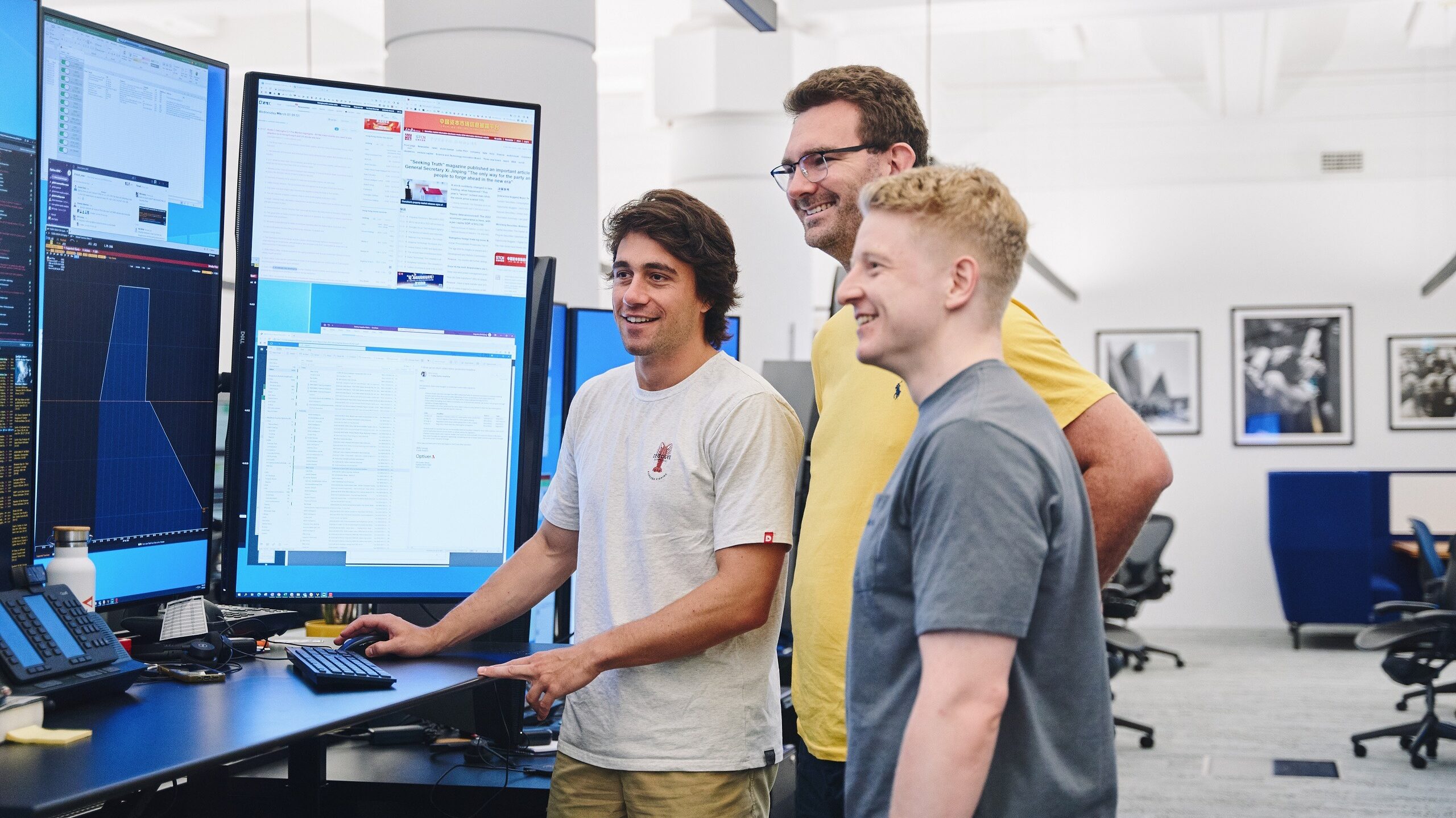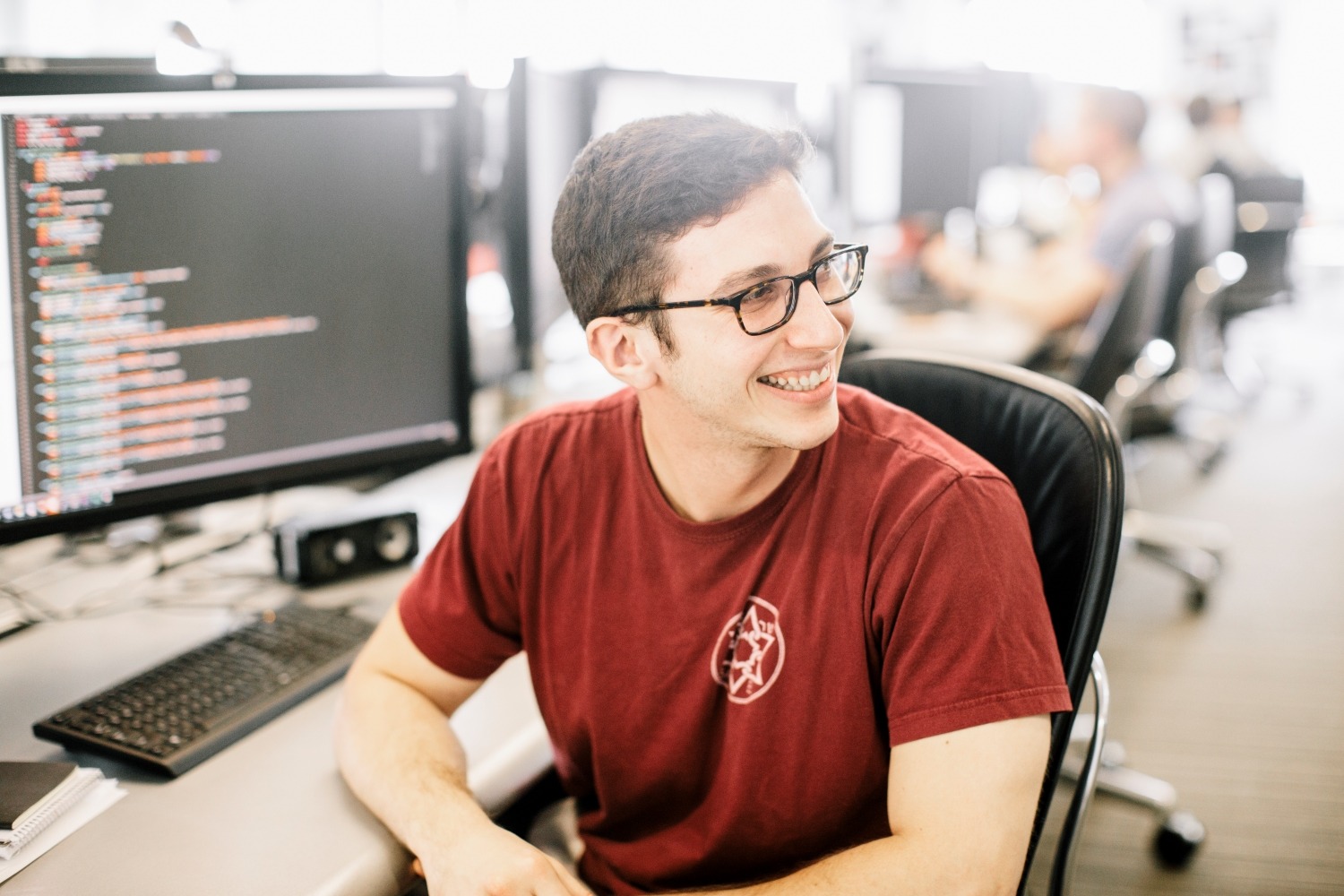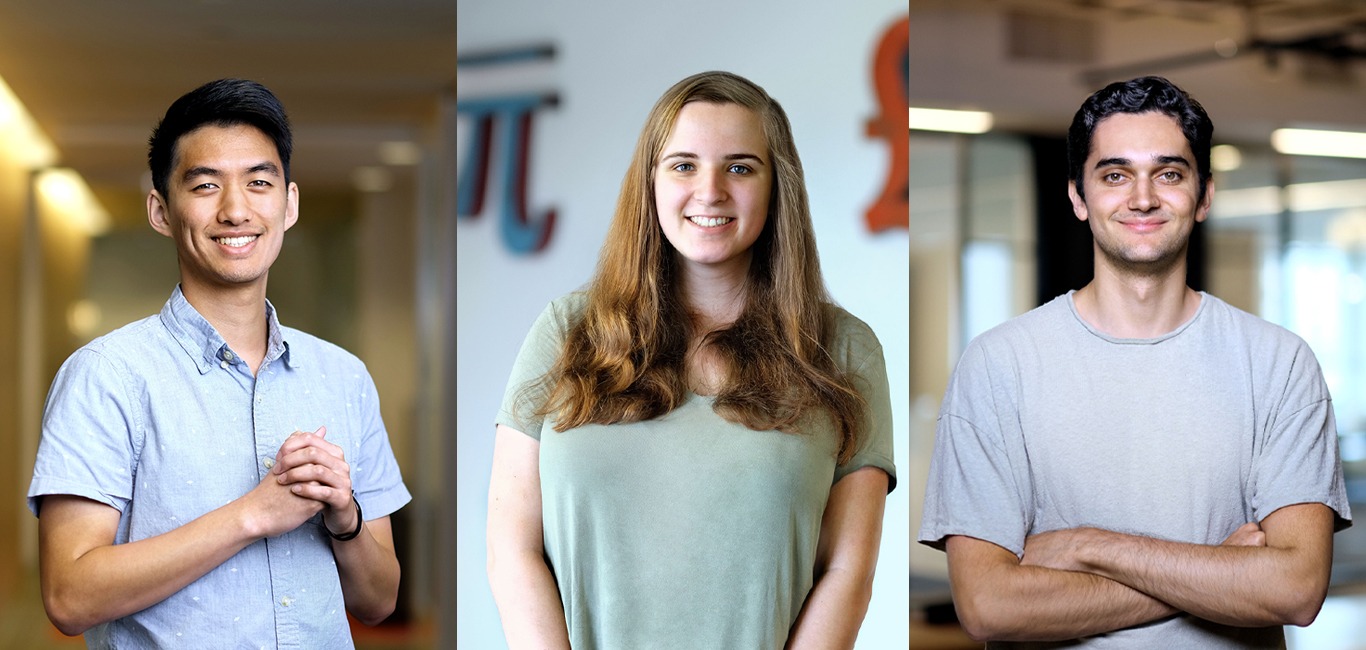APAC Internship and Graduate FAQs
Ready to accelerate your growth in one of the most dynamic and fascinating industries? But unsure what to expect?
Check out our Internship and Graduate FAQs below. We’ve covered everything you need to know about career opportunities in our APAC offices.
Applying
Applications for Optiver’s 2024-25 Internship and 2025 Graduate Programs are now open. Your degree could lead you to a role in our Trading, Tech or Research teams.
Applications will close as soon as the positions are filled. We recommend applying early!
- Quantitative Trader
- Quantitative Researcher
- Software Developer
- FPGA Developer
Trading:
10 weeks over summer. We’ll confirm the start date with you closer to the time.
Technology and Research:
12 weeks over summer. We’ll confirm the start date with you closer to the time.
We have two graduate intakes – one in September 2024 for mid-year finishers and another in February 2025.
International students studying at an Australian university can apply to our intern and graduate roles.
In short – no! Whilst it’s important to let us know why you’re looking to start your career at Optiver, no prior knowledge of finance is necessary. We can point you in the right direction for some pre-reading, but we’ll teach you all you need to know when you get here.
Even if you are in your pre-penultimate year – we would love to see you apply! Students in their penultimate year are typically better equipped to undertake our assessments and have a broadened set of experiences to talk to in interviews, so don’t be disheartened if you are unsuccessful. You are welcome to reapply the following year.
Yes! Our applications are open to final-year students and graduates with up to three years’ work experience.

Trading
The Sydney office is one of the primary players within Asian markets, trading a range of products on all relevant markets. Sydney is the APAC head office with smaller offices in Singapore, Taipei and Hong Kong.
Traders work when the markets in Asia are open. This may mean a slightly later start in the morning (10-11am) with a slightly later finish (6-7pm). The work days are intense but they wind down at a humane hour, leaving time for your interests outside of work.
Our award-winning training program is led by an Education team and provides our interns and graduates the highest quality training. Graduates will undertake their initial training in Amsterdam, alongside global peers. You’ll initially learn trading fundamentals through theory and technical classes, then work on various projects and trade on Optiver’s simulated markets.
Of course, your education at Optiver won’t end with your training. Between formal mentoring and feedback, the informal peer-to-peer learning that’s a natural by-product of our highly collaborative culture and outside professional development opportunities, your passion for knowledge will never go unsatisfied.
The below may give you an indication of the types of trading at Optiver, but through the training program, we’ll ensure we find the perfect role for you.
- Options Market Maker
You love puzzles, predictions and problem-solving. You’re always hungry to learn. You’re driven to understand the why, and you’re also comfortable making decisions under uncertainty. You have a real passion for quantitative problems and a flair for numbers. - Delta 1 Trader
You have a love for statistical analysis and deriving insights from big data sets. You enjoy microanalysis and applying those insights to the bigger picture. You possess a competitive spirit that drives you to never settle for ‘good enough’. - Institutional Trader
Building rapport comes naturally to you. You enjoy developing strong relationships and you don’t take yourself too seriously. You have amazing communication skills and remain focused under pressure. You’re passionate about quantitative problems and have a flair for numbers. And you have an inherent drive to work in a fast-paced, sometimes uncertain environment.
Application > Optiver’s quantitative assessment > Behavioural interview > Final interview.
In short – yes. We want you to find the perfect role for you. We have had Traders move to the Risk and Research space. We also encourage you to travel to different Optiver offices.
Tech
What programming languages can I complete the Software HackerRank assessment in?
You can complete the Software HackerRank assessment in C++, C#, Java or Rust.
What programming languages can I complete the FPGA HackerRank assessment in?
The FPGA HackerRank assessment will probe your understanding of Digital Circuit Design, FPGAs and a bit of hardware code comprehension – code snippets are given in both VHDL and Verilog.
What’s involved in the internship?
To set you up for success, the internship begins with our bootcamp which brings you up to speed on trading concepts and our development process. From there you’ll be working on live business problems, knowledge sharing with your peers and partaking in some healthy competition. Along the way, you’ll be supported by your teammates, business mentor and our Head/s of IT Education.
What types of projects could I be working on?
We don’t create “special intern projects”. Instead, interns work on live problems that have a direct business impact. The most recent Interns worked on everything from predicting and trading intra-day auctions in the Japan market, to visualisation of signals and combining them using machine learning.
How do developers work with traders?
The success of our core business depends on the systems we build in-house. By being internally collaborative we can be externally competitive. Developers will work shoulder to shoulder with traders from gathering requirements to seeing their code deployed.
Do you use machine learning?
Yes – we use machine learning and are focussed on exploring how we can best apply existing and emerging ML techniques to our trading and research. We’re also actively looking for ways to use AI to improve our market predictions, plus our day-to-day.
We are a fantastic place to apply machine learning as we have:
– Great access to data
– Excellent domain knowledge – we are not blindly throwing data at a black box; we have great internal expertise on trading
– A fast feedback loop that drives rapid improvement, we see very quickly whether we are improving or not.
How likely am I to use machine learning techniques if I join the intern or graduate program?
It’ll depend on the team you join. Our internships begin with a structured training program, led by our dedicated team of educators. Each year, we look at the proposed list of intern projects and pick those that encompass your learnings – some may contain machine learning, others won’t. We aim to match interns to their primary interests (as much as business demand allows), so do flag your strong interest in machine learning through the interview process.
What sort of problems do you use to solve?
Given the heavily quantitative nature of trading, there are several areas well suited to machine learning including in our research teams. It acts as a core part of some of our trading, not just a secondary tool or plaything.
Why do you code in C++ over something like golang?
Deterministic performance in our code is extremely important to us, small amounts of variance in our code can have considerable impact on our ability to get the best trades. With C++ you have full control of your runtime, e.g., memory management, whereas other languages like Java and golang you are more at the mercy of their runtime (e.g., garbage collection).
What is the recruitment process?
The Software Developer and FPGA Developer application process is: Application > Online assessment > Behavioural interview > Technical interview > Final interview day (2x Technical interviews and 1x Behavioural interview)
What kind of work could I get involved in as a researcher?
Research teams work closely with traders, utilising our large historical and live datasets to improve our trading strategies and performance. Options Pricing Researchers are responsible for our core pricing models. Performance Researchers process and discover hidden patterns and optimise trading success. Quantitative Researchers use statistical analysis techniques and derive insights, applying those to the bigger picture.
As a researcher, will I get my own projects?
Yes, researchers typically work end-to-end on projects with traders and developers. You’ll develop hypotheses about how to improve our competitive success and test them experimentally under real-world conditions and constraints.
What will the training involve?
Researchers will go through the same initial training as traders. You’ll then be immersed into your specific research department with a mentor, to learn the systems and dive straight into projects.
How do I know what type of research is for me?
If you love data driven problem solving, chances are research could be for you. With different research roles, the job descriptions will help to provide more detail. The recruiters can discuss your interests through the process. The training program will give you exposure to different areas of research.
What is the recruitment process?
Application > Optiver’s quantitative assessment > Behavioural virtual interview > Technical assignment > Final interview
Risk
What does the risk team do?
Our Risk team develop and deliver the risk management activities of the entire firm, in a fast-paced and dynamic trading environment. They help us improve our current risk framework and keep us at the forefront of an ever-changing trading environment. They create and improve risk monitoring tools as well as analysing risk and market data to solve practical problems.
What background do I need to come from?
You can come from any degree background, but will have a keen interest in the financial markets, with strong analytical and problem-solving skills, coupled with a natural curiosity.
What does the internship and grad training look like?
Risk interns and graduates will undertake the same initial training as our traders and researchers. You’ll then join the team, with a dedicated mentor, and go on rotations to gain exposure to the different areas of risk.
How closely do they work with the traders?
Our risk team sit on the trading floor and work very closely with our traders, on a daily basis.
What is the recruitment process?
Application > Optiver’s quantitative assessment > Behavioural virtual interview > Technical assignment> Final interview
How can I connect with Optiver?
There will be many virtual and in person opportunities to connect with us throughout the year. Follow us on social media to stay in the loop as they are announced.
Check out our Events page to register and attend our upcoming events. We look forward to meeting you!





